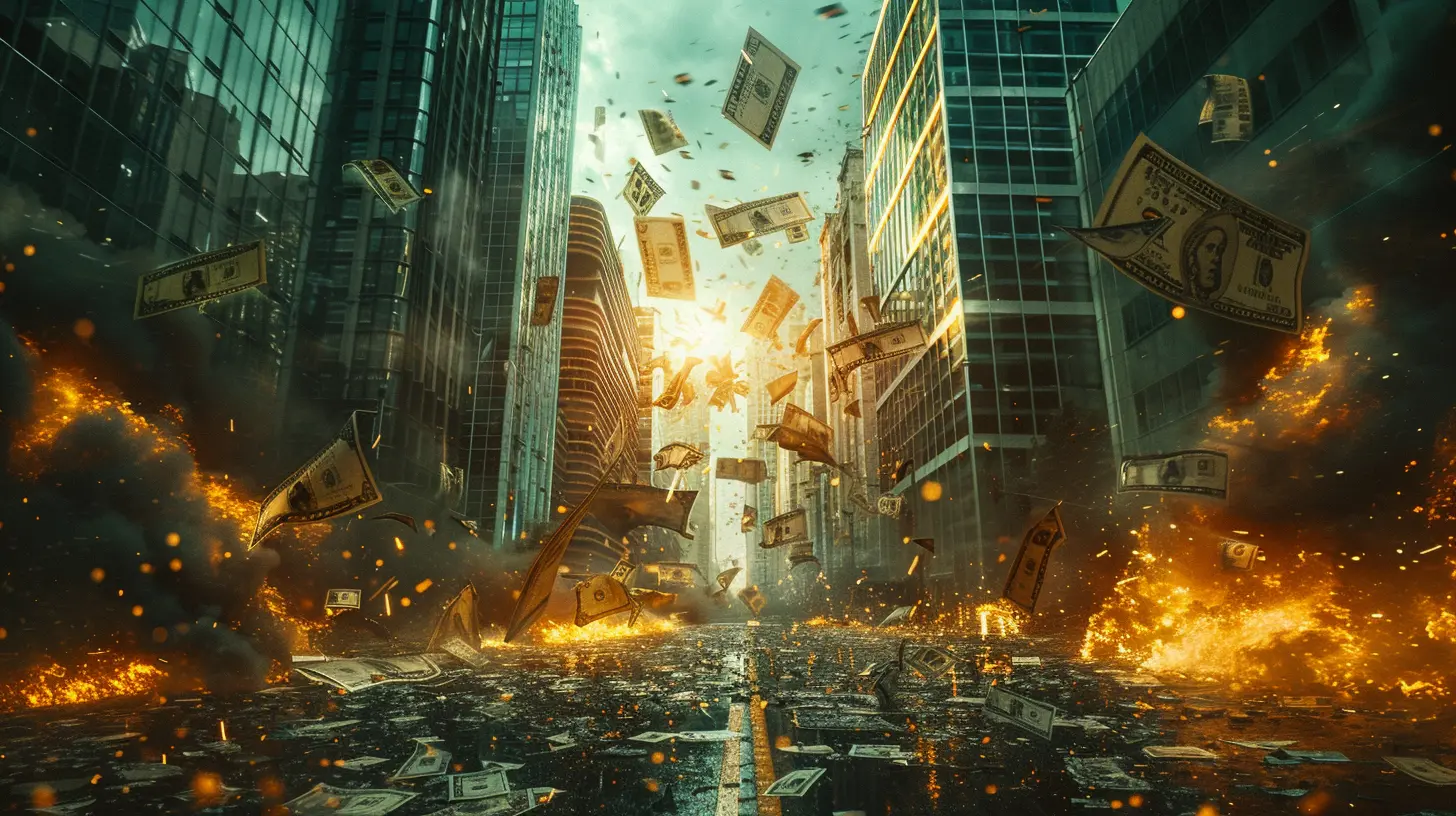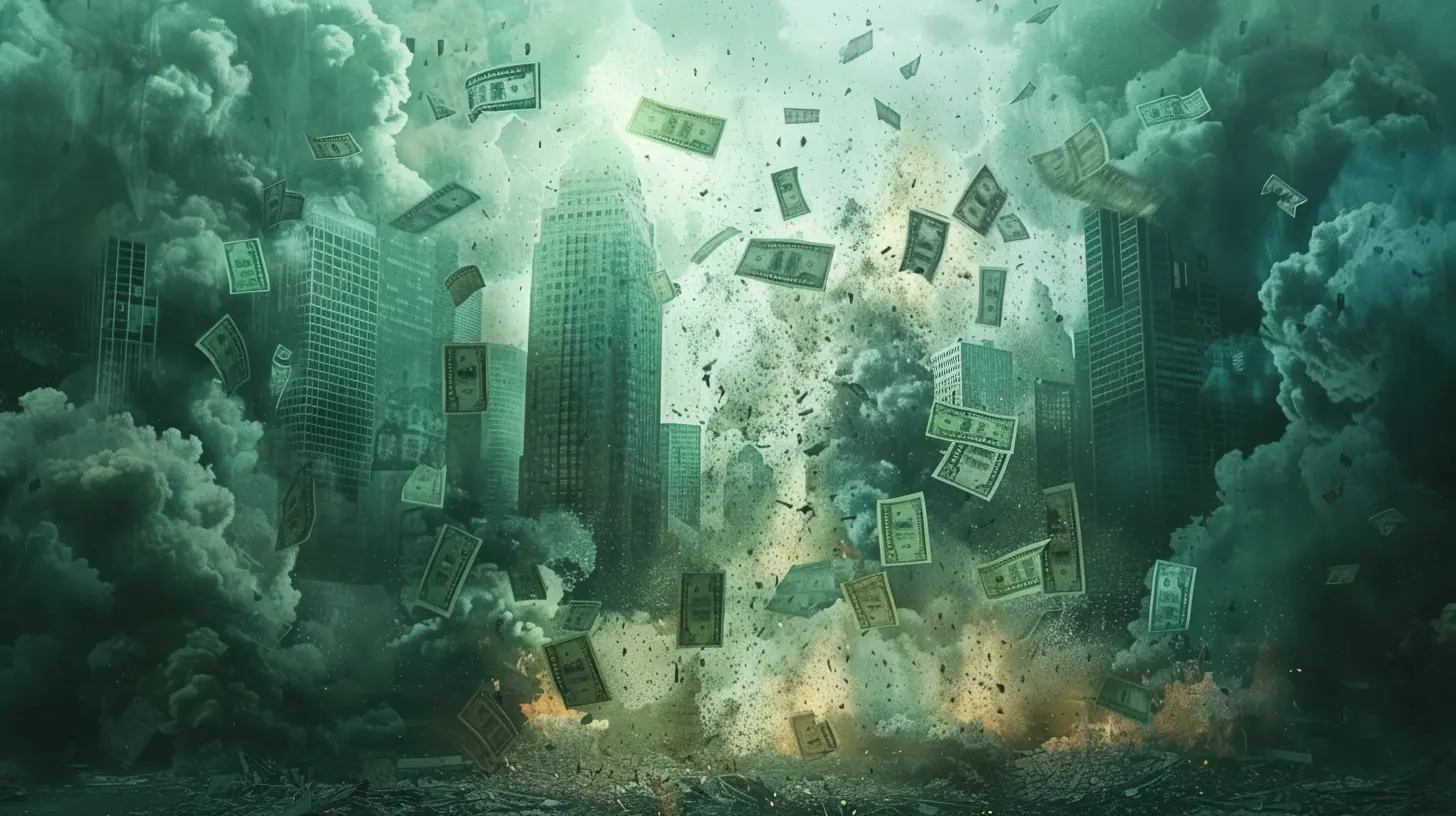Credit Default Swaps: The Financial Weapon of Mass Destruction or Saviour?
19 October 2025
Alright, buckle up, finance fam. We’re taking a wild ride into the most misunderstood, mysterious, and – let’s be real – drama-packed corners of Wall Street: Credit Default Swaps (CDS). Are they a hero in disguise or the villain lurking in the shadows? Are they financial genius or financial madness? There’s only one way to find out, so grab a coffee (or something stronger) and let’s dive in.

💣 CDS: The Good, The Bad, and the Ugly
When Warren Buffett calls something a “financial weapon of mass destruction,” you pay attention. That’s right — the Oracle of Omaha isn’t one to exaggerate unless there’s some real tea to spill. But here’s the twist: while CDS have been blamed for the 2008 meltdown, they're also hailed as brilliant tools for managing risk. Confused? Perfect — you’re in the right place.
🧠 So, What Exactly Is a Credit Default Swap?
First, let’s decode the jargon. Think of a credit default swap as insurance for your money. Imagine you've lent your friend Jack $1000, and you’re worried he might flake. So, you go to another friend, Jill, and say, “Hey, if Jack doesn’t pay me back, will you cover me?” Jill agrees, but only if you pay her a fee every month. That’s basically how a CDS works.You’re protecting yourself against “default” — aka, someone not paying their debt. It’s a contract between two parties, and it’s tied to a third-party debt, usually a bond. If the bond issuer goes bust, the CDS kicks in. Simple, right?
✅ Buyer of CDS = The Worried Lender
✅ Seller of CDS = The “Insurance” Provider
✅ Underlying Asset = The Loan or Bond
Boom. You just decoded Wall Street witchcraft.

🛡️ The Saviour Side of CDS
Let’s give credit where it’s due. Credit default swaps, when used properly (ahem, keyword: properly), are actually brilliant. Think about it: they allow banks and investors to manage risk without dumping the actual bonds. They can hold onto risky debt while transferring the risk. It’s like having your cake and eating it too – with a side of whipped cream.1. Risk Management Like a Pro
At the core, CDS provide a hedge — a safety net — for investors. Banks with big portfolios use CDS to protect themselves against defaults. It’s part of their risk management strategy. Just like you insure your house against fire, they insure their loans against financial disaster.2. Market Liquidity Magic
By allowing investors to unload their risk (without actually selling the asset), CDS contribute to market liquidity. That’s finance speak for: things can flow more freely. Investors feel safer, markets stay active, and everyone’s happy… at least on paper.3. Price Discovery? Yes, Please!
CDS spreads (i.e., the cost of insuring different types of debt) give insights into credit risk. If the spread widens, it screams “Hey! This company might be in trouble!” That kind of market signal? Priceless.
👿 CDS: The Villain in Designer Shoes
Now, let’s spill the toxic tea. Credit default swaps also have a dark side — and it’s not just a little gray area. We’re talking full-blown financial Twilight Zone if they’re misused.1. The 2008 Meltdown – AKA CDS Gone Wild
Flashback to the Great Recession. Remember Lehman Brothers? AIG? Yeah, CDS played a starring role. Basically, Wall Street was passing around risk like a game of financial hot potato. Nobody really knew who was holding what, or how much exposure was out there. It was chaos in a three-piece suit.Banks were buying CDS like candy, without even owning the underlying assets. That’s like buying insurance on your neighbor’s house and cheering when it burns down. Creepy, right? This is called a “naked CDS,” and it’s just as sketchy as it sounds.
2. Lack of Transparency – Secrets Don’t Belong in Finance
Before regulation caught up, the CDS market was a total black box — no one had visibility. Imagine buying something super risky and not knowing who’s on the hook if things go south. Scary stuff. That opacity fueled panic when things started collapsing.3. Systemic Risk: When Dominoes Fall
One institution failing is unfortunate. But when they’re all tied together through tangled CDS contracts? That’s a recipe for systemic collapse. The fall of Lehman Brothers triggered a chain reaction, all because everyone was holding the same shaky CDS bets.😇 Saviour or 😈 Scourge: The Verdict?
So, are credit default swaps financial angels or devils in disguise? Well, it’s complicated. It’s like fire — incredibly useful if controlled, catastrophically dangerous if not.When regulated and understood, CDS provide vital risk management tools. They grease the economic wheels and help investors cover their behinds. But when greed takes over and people start making reckless bets? Kaboom. The whole thing blows up like a Michael Bay movie.
The sad part? CDS aren’t inherently evil. They’re just tools. It’s how people use (or abuse) them that makes the difference.
🎯 Where Do We Stand Today?
Post-2008, regulators have stepped in — hard. The Dodd-Frank Act and other reforms brought transparency and oversight to the CDS market. More trades go through centralized clearinghouses. More disclosures are required. That means fewer nasty surprises.Banks themselves have gotten (a bit) smarter. They now hold more capital against risky bets and think twice before jumping headfirst into the danger zone. Progress? Yes. Perfection? Not quite.
💼 Who Actually Uses CDS, Anyway?
Surprise: It’s not just banks. A variety of players dabble in CDS, including:- Hedge Funds (big risk, big reward attitude)
- Pension Funds (trying to protect your grandma’s retirement)
- Insurance Companies (like AIG – oops, too soon?)
- Institutional Investors (playing it safe-ish)
Basically, if you’ve got serious capital and some credit exposure, CDS are likely on your radar.
🧪 Let’s Break It Down With a Real-Life Example
Say Company X issues a $10 million corporate bond. Investor A buys it but wants protection. Enter Investor B, who sells a CDS to Investor A for a 2% annual fee. If Company X defaults, Investor B pays out the full $10 million.Now here’s where it gets messy. Investor C, D, and E also buy CDS contracts on that same bond — even though they don’t own it. Suddenly, there’s $40 million in CDS contracts on a $10 million bond. Can we say “bubble”? This is exactly the kind of madness that fueled the 2008 crisis.
🔍 Red Flags to Watch For With CDS
If you're investing, researching, or just nosy (no judgment), here are signals that things might be going south:- Rapidly widening CDS spreads
- Increase in naked CDS trading
- CDS on government debt (um, are we betting on countries to fail now?)
- Sudden spikes in CDS volume around one company or sector
If these start showing up, it might be time to grab your finance pop-corn because drama is incoming.
📉 Can CDS Cause Another Crash?
Here’s the juicy question: could CDS cause another financial collapse?The honest answer? Maybe. But it’s less likely now, thanks to increased regulation and market awareness. Still, never say never. Human greed, overreach, and overconfidence are the true villains of any financial story — not the tools themselves.
💬 Real Talk: Should You Care About CDS?
If you’re a retail investor or just someone who side-eyes Wall Street from afar, CDS might seem like background noise. But remember: when these financial behemoths fall, they take the whole economy — jobs, savings, home values — with them.So yes, you should care. At least a little bit. Because what happens behind the curtains of high finance eventually hits Main Street like a truck.
✨The Final Word
Credit default swaps are neither angels nor demons. They’re more like spicy chili peppers — exhilarating in the right hands, explosive in the wrong ones. Blame the cook, not the spice.Used right, they help stabilize the financial system and promote global credit efficiency. Used wrong, they can bring it all crashing down. So before you cheer or jeer the CDS, remember: It’s not the swap that’s evil… it’s how you play the game.
all images in this post were generated using AI tools
Category:
Financial CrisisAuthor:

Uther Graham
Discussion
rate this article
1 comments
Marni Hunter
Credit default swaps can amplify systemic risk, acting as a double-edged sword; while they provide necessary protection against defaults, their misuse can destabilize entire financial markets.
October 31, 2025 at 5:53 AM

Uther Graham
Thank you for your insightful comment! You're absolutely right; while credit default swaps can offer vital protection, their potential for misuse poses significant risks to the stability of financial markets. Balancing their benefits and dangers is crucial.


